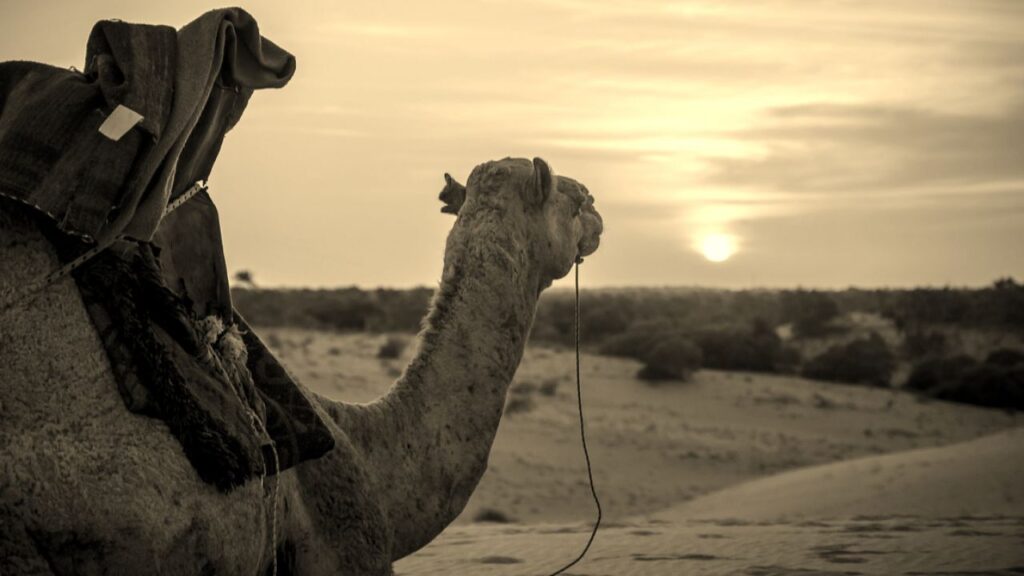
Prophet muhammad listen to women’s oath of fidelity at Al-Aqaba
In this year, twelve men of Yathrib, of whom ten were of the Jewish tribe of Khazraj and the other
two of Aws, came to Meccan and took an oath of fidelity to the Prophet at Al-Aqaba, a hill on the
north of that city. This oath was called the Women’s’ Oath, not that any women were present at
this time, but because a man was not thereby obliged to take up arms in defense of the Prophet or
his religion, it being the same oath that was afterwards exacted of the women.
This oath was as follows: “We will not associate anything with Allah; we will not steal nor commit adultery or fornication, nor kill our children (as the pagan Arabs used to do when they apprehended that they
would not be able to maintain them), nor forge calumnies; we will obey the Prophet in everything
that is reasonable, and we will be faithful to him in well and sorrow.”
When they had solemnly engaged to do all this, the Prophet sent one of his disciples, Mus’ab Ibn Umair, home with them to teach them the fundamental doctrines and ceremonies of the religion. Mus’ab, having arrived at Yathrib by the assistance of those who had been formerly converted, gained several new converts, particularly Usaid Ibn Khudair, a chief of man of the city, and Sa’d Ibn Mu’adh, prince of the tribe
of Aws.
Islam spread so fast that there was a scarce a house that did not have some Muslims in it.
The next year, being the thirteenth of the mission (A.D. 622) Mus’ab returned from Yathrib
accompanied by seventy-three men and two women of that city who had adopted Islam, besides
others who were as yet unbelievers.
On their arrival, these Yathribites immediately sent to the Prophet and invited him to their city.
The Prophet was not in great need of such assistance, for his opponents had by this time grown so powerful in Mecca that he could not stay there much longer without imminent danger.
He therefore accepted their proposal and met them one night by appointment at Al Aqaba attended by his uncle Al-Abbas, who, though he as not then a convert, wished his nephew well.
Al Abbas made a speech to those of Yathrib wherein he told them that, as the Prophet Muhammad was obliged to quit his native city and seek shelter elsewhere, and they had offered him their protection, they would do well not to deceive him; and that if they were not firmly resolved to defend and not to betray him, they had better declare their minds and let him provide for his safety in some other manner.
Upon their professing their sincerity, the Prophet swore to be faithful to them, on condition that they should worship none but Allah observe the precepts of Islam, obey the Prophet in all that was right, and protect him against all insults as heartily as they would their wives and families.
They then asked him what would be their return, if they should happen to be killed in the cause of Allah; he answered: “Paradise,” whereupon they pledged their faith to him and his cause.
The Hijra – People of Yathrib (Madina) welcome Muslims
The Prophet then selected twelve men out of their number to act as his delegates. Thus was
concluded the second covenant of Al Aqaba.
The Yathribites returned home leaving the Prophet to arrange for the journey to their city.
The Prophet directed his followers to seek immediate safety at Yathrib, which they accordingly did.
About one hundred families silently disappeared from Mecca and proceeded to Yathrib, where they were received with enthusiasm and much hospitality. Finally, all the disciples had gone to Yathrib.
The Prophet alone remained at Mecca, keeping with him only his young cousin, ‘Ali, and his devoted friend Abu Bakr.
The Makkans plot to kill Allah’s Prophet
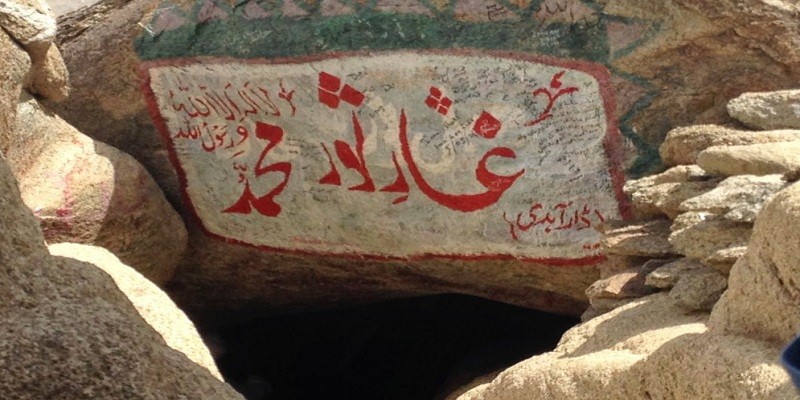
The Meccans, fearing the consequence of this new alliance, began to think seriously of preventing
Muhammad from escaping to Yathrib. They met in all haste. After several milder expedients had
been rejected, they decided that he should be killed.
They agreed that one man should be chosen out of every tribe and that each man should strike a blow at him with his sword so that responsibility of the guilt would rest equally on all tribes.
The Bani Hashim, Muhammad’s own tribe, were much inferior and therefore would not be able to revenge their kinsman’s death.
A number of noble youths were selected for the bloody deed.
As the night advanced, the assassins posted themselves round the Prophet’s dwelling. They watched all night long, waiting to murder Muhammad when he should leave his house at the early dawn. By some the Prophet had warned of the danger, and he directed ‘Ali to lie down in his place and wrap himself up in his green clock, which he did.
The Prophet miraculously escaped through the window and he repaired to the house of Abu Bakr, unperceived by door. These, in the meantime, looking through a crevice and seeing ‘Ali, whom they mistook for Muhammad himself, asleep, continued watching there until morning.
When ‘Ali arose, they found themselves deceived. The fury of the Quraish was now unbounded.
The news that the would be assassins had returned unsuccessful and that Muhammad had escaped
aroused their whole energy. A price of a hundred camels was set upon Muhammad’s head
A narration Aisha Bint Abu Bakr (Prophet’s Wife)
Narrated ‘Aisha Bint Abu Bakr (the wife of the Prophet): “I never remembered my parents believing in any religion other than the true religion (Islam), and (I don’t remember) a single day passing without our being visited by Allah’s Messenger in the morning and in the evening.
When the Muslims were put to test (troubled by the pagans), Abu Bakr set out migrating to the land of
Abyssinia (Ethiopia), and when he reached Bark-al-Ghimad, Ibn Ad-Daghina, the chief of the tribe of Qara,
met him and said, ‘O Abu Bakr! Where are you going?’
Abu Bakr replied: ‘My people have turned me out (of my country), so I want to wander on the earth and worship my Lord.’
Ibn Ad-Dhagina said: ‘O Abu Bakr! A man like you should not leave his homeland, nor should he be driven out, because you help the destitute, earn their living, and you keep good relations with your kith and kin, help the weak and the poor, entertain guests generously, and help the calamity-stricken persons. Therefore, I am your protector. Go back and worship your Lord in your town.’
“So Abu Bakr returned and Ibn Ad-Daghina accompanied him. In the evening Ibn Ad-Dhagina visited the nobles of Quraish and said to them.
‘A man like Abu Bakr should not leave his homeland, nor should he be driven out. Do you (Quraish) drive out a man who helps the destitute, earns their living, keeps good relations with his kith and kin, helps the weak and poor, entertain guests generously and helps the calamity-stricken persons?’
So the people of Quraish could not refuse Ibn Ad-Dhagina’s protection, and they said to Ibn Ad-Daghina: ‘Let Abu Bakr worship his Lord in his house.
He can pray and recite there whatever he likes, but he should not hurt us with it, and should not do it publicly, because we are afraid that he may affect our women and children.”
Ibn Ad-Dhagina told Abu Bakr all of that. Abu Bakr stayed in that state, worshipping
his Lord in his house. He did not pray publicly, nor did he recite Quran outside his house.
Abu Bakr builds Mosque
“Then a thought occurred to Abu Bakr to build a mosque in front of his house, and there he used
to pray and recite the Quran. The women and children of the pagans began to gather around him
in great number. They used to wonder at him and look at him.
Abu Bakr was a man who used to weep too much, and he could not help weeping or reciting the Quran.
That situation scared the nobles of the pagans of Quraish, so they sent for Ibn Ad-Daghina.
When he came to them, they said: ‘We accepted your protection of Abu Bakr on condition that he should worship his Lord in his house, but he has violated the conditions and he has built a mosque in front of his house where he prays and recites the Quran publicly.
We are not afraid that he may affect our women and children unfavorably.
So, prevent him from that. If he likes to confine the worship of his Lord to his house, he may do so, but if he insists on doing that openly, ask him to release you from your obligation to protect him, for we dislike to break our pact with you, but we deny Abu Bakr the right to announce his act publicly.
‘ Ibn Ad-Dhagina went to Abu Bakr and said: ‘O Abu Bakr!
You know well what contract I have made on your behalf; now, you are either to abide by it, or
else release me from my obligation of protecting you, because I do not want the Arabs hear that
my people have dishonored a contract I have made on behalf of another man.
‘ Abu Bakr replied: ‘I release you from your pact to protect me and am pleased with the protection from Allah.’
Aisha’s narration’s continues: “At that time the Prophet was in Mecca, and
he said to the Muslims:
‘In a dream I have been shown your migration place, a land of date palm trees, between two
mountains, the two stony tracts.’
So, some people migrated to Medina, and most of those people who had previously migrated to the land of Ethiopia, returned to Medina.
Abu Bakr also prepared to leave for Medina, but
prophet muhammad said to him: ‘Wait for awhile, because I hope that I will be allowed to migrate also.’
Abu Bakr replied: ‘Do you indeed expect this? Let my father be sacrificed for you!’
prophet muhammad said: ‘Yes.’
So Abu Bakr did not migrate for the sake of Allah’s Messenger in order to accompany him. He fed two she camels he possessed with the leaves of As-Samur tree that fell on being struck by a stick for four months.
“One day, while we were sitting in Abu Bakr’s house at noon, someone said to Abu Bakr: ‘This is
Allah’s Messenger with his head covered coming at a time at which he never used to visit us
before.’
Abu Bakr said: ‘May my parents be sacrificed for him. By Allah he has not come at this hour except for a great necessity.’
So Allah’s Messenger came and asked permission to enter, and he was allowed to enter.
When he entered, he said to Abu Bakr: “Tell everyone who is present with you to go away.’
Abu Bakr replied: ‘There are none but your family, May my father be sacrificed for you, O Allah’s Messenger!’
prophet muhammad said: ‘I have been given permission to migrate.’
Abu Bakr said: ‘Shall I accompany you? May my father be sacrificed for you, O Allah’s Messenger!’
prophet muhammad said: ‘Yes.’
Abu Bakr said, ‘O Allah’s Messenger! May my father be sacrificed for you, take one of these two she-camels of mine.’
prophet muhammad replied: ‘I will accept it with payment.’ So we prepared the baggage quickly and put some journey food in a leather bag for them.
Asma, Abu Bakr’s daughter, cut a piece from her waist belt and tied the mouth of the leather bag with it, and for that reason she was named ‘Dhat-un-Nitaqain’ (the owner of two belts).
“Then Allah’s Messenger and Abu Bakr reached a cave on the mountain of Thaur and stayed there
for three nights.
Abdullah Ibn Abi Bakr who was an intelligent and sagacious youth, used to stay with them overnight. He used to leave them before daybreak so that in the morning he would be with Quraish as if he had spent the night in Mecca.
He would keep in mind any plot made against them and when it became dark he would go and inform them of it. ‘Amir Ibn Fuhaira, the freed slave of Abu Bakr, used to bring the milch sheep (of his master, Abu Bakr) to them a little while after nightfall in order to rest the sheep there.
So they always had fresh milk at night, the milk of their sheep, and the milk which they warmed by throwing heated stones in it.
‘Amir Ibn Fuhaira would then call the herd away when it was still dark (before daybreak). He did the same in each of those three nights.
Allah’s Messenger and Abu Bakr had hired a man from the tribe of Bani Ad-Dail from the family of Bani Abd Ibn Adi as an expert guide, and he was in alliance with the family of Al-As Ibn Wail As-Sahmi and he was in the religion of the infidels of Quraish.
The Prophet and Abu Bakr trusted him and gave him their two she-camels and took his promise to
bring their two she-camels to the cave of the mountain of Thaur in the morning after three nights
later. And when they set out, Amir Ibn Futhaira and the guide went along with them and the guide
led them, along the seashore.” (Sahih Al-Bukhari).
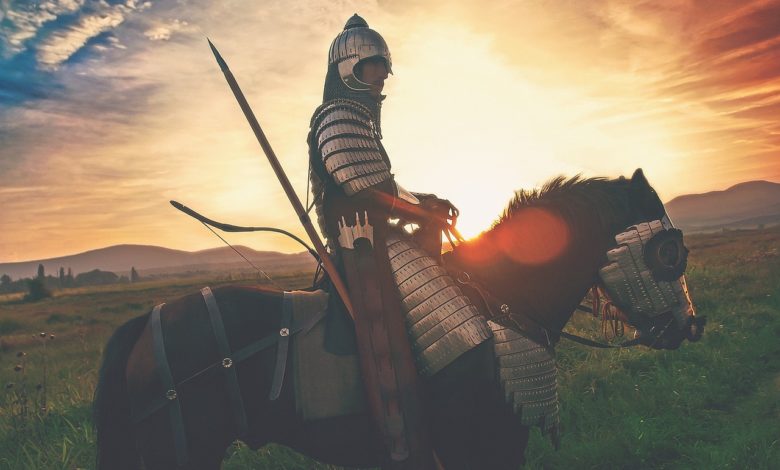
The nephew of Suraqa Ibn Ju’sham said that his father informed him that he heard Suraqa Ibn
Jusham saying: “The messengers of the pagans of Quraish came to us declaring that they had assigned for the persons who would kill or arrest Allah’s Messenger and Abu Bakr, a reward equal to their bloodmoney.
While I was sitting in one of the gatherings of my tribe, Bani Mudlij, a
man from them came to us and stood up while we were sitting and said: ‘O Suraqa! No , I have
just seen some people far away on the seashore, and I think they are Muhammad and his
companions.’
I, too, realized that it must have been they. But I said: ‘No, it is not they, but you have seen so-and-so and so-and-so, whom we saw set out.’
I stayed in the gathering for a while and then got up and left for my home, and ordered my slave-girl to get my horse, which was behind a hillock, and keep it ready for me.
“Then I took my spear and left by the back door of my house dragging the lower end of the spear
on the ground and keeping it low. Then I reached my horse, mounted it and made it gallop. When
I approached them (Muhammad and Abu Bakr), my horse stumbled and I fell down from it.
Then I stood up, gold hold of my quiver and took out the divining arrows and drew lots as to whether I
should harm them or not, and the lot which I disliked came out. But I remounted my horse and let
it gallop, giving no importance to the divining arrows.
When I heard the recitation of the Qur’an by Allah’s Messenger who did not look hither and thither while Abu Bakr was doing it often, suddenly the forelegs of my horse sank into the ground up to the knees, and I fell down from it.
Then I rebuked it, and it got up but could hardly take out its forelegs from the ground, and when it stood up straight again, its forelegs caused dust to rise up in the sky like smoke.
Then again I drew lots with the divining arrows, and the lot which I disliked came out. So I called upon them to feel secure.
They stopped, and I remounted my horse and went to them. When I saw how I had been hampered from harming them, it came to my mind that the cause of Allah’s Messenger (Islam) would become victorious.
So I said to them: ‘Your people have assigned a reward equal to bloodmoney for your head.’
Then I told them all the plans the people of Mecca had made concerning them. Then I offered them some journey food and goods, but they refused to take anything and did not ask for anything,
but prophet muhammad said: ‘Do not tell others about us.’ Then I requested him to write for me a statement of security and peace. He ordered ‘Amir Ibn Fuhaira, who wrote it for me on a parchment, and then Allah’s Messenger proceeded on his way.” (Sahih Al-Bukhari)
Holy Prophet travels to Madina (Hijra)
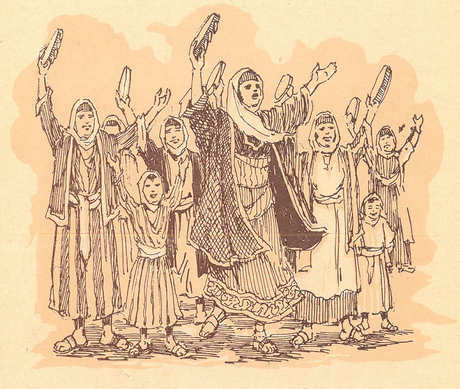
“Narrated ‘Urwa Ibn Az-Zubair: “Allah’s Messenger met Az Zubair in a caravan of Muslim
merchants who were returning from Sham. Az -Zubair provided Allah’s Messenger and Abu Bakr
with white clothes to wear.
When the Muslims of Medina heard the new of the departure of Allah’s Messenger from Mecca (towards Medina), they started going to the Harra every morning,. They would wait for him till the heat of the noon forced them to return.
One day, after waiting for a long while, they returned home, and when they went into their houses, a Jew climbed up to the roof of one of the forts of his people to look for something, and he saw Allah’s Messenger and his companions, dressed in white clothes, emerging out of the desert mirage.
“The Jew could not help shouting at the top of his voice: ‘O you Arabs! Here is your great man
whom you have been waiting for!’ So all the Muslims rushed to their arms and received Allah’s
Messenger on the summit of Harra.
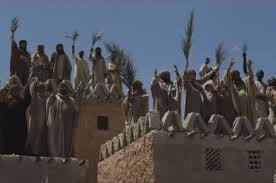
The Prophet turned with them to the right and alighted at the quarters of Bani Amr Ibn Auf, and this was on Monday in the month of Rabi ul Awal. Abu Bakr stood up, receiving the people, while Allah’s Messenger sat down and kept silent.
Some of the Ansar who came and had not seen Allah’s Messenger before began greeting Abu Bakr, but when the sunshine fell on Allah’s Messenger and Abu Bakr came forward and shaded him with his sheet,
only then the people came to know Allah’s Messenger.
Allah’s Messenger stayed with Bani Amr Ibn Auf for ten nights and established the mosque (Mosque of Quba) which was founded on piety.
prophet muhammad prayed in it and then mounted his she-camel and proceeded on, accompanied
by the people till his she-camel knelt down at the place of the Mosque of Allah’s Messenger at
Medina.
Some Muslims used to pray there in those days, and that place was a yard for drying dates belonging to Suhail and Sahl, the orphan boys who were under the guardianship of Asad In Zurara.
When his she-camel knelt down,
prophet muhammad said: ‘This place, Allah willing, will be our abiding place.’
Allah’s Messenger then called the two boys and told them to suggest a price for that yard so that he might take it as a mosque.
The two boys said: ‘No, but we will give it as a gift, O Allah’s Messenger!’
Allah’s Messenger then built a mosque there.
The Prophet himself started carrying unburned bricks for its building and while doing so,
he was saying: ‘This load is better than the load of Khaibar, for it is more pious in the Sight of Allah and purer and better rewardable.’
He was also saying: ‘O Allah! The actual reward is the reward in the Hereafter, so bestow Your Mercy on the Ansar and the Emigrants.’
Thus the Prophet recited (by way of proverb) the poem of some Muslim poet whose name is unknown to me.”
(Ibn Shibab said, ‘In the hadiths, it does not occur that Allah’s Messenger recited a complete poetic verse other than this one.’) (Sahih Al-Bukhari)
Hijra – Islamic Calendar marks this date
Thus was accomplished the hijrah, or the flight of Muhammad as called in European annals, from
which the Islamic calendar dates.
Yathrib renamed Al-Madina, Al-Munawara – “The Illuminated City”
When the Prophet Muhammad and his companions settled at Yathrib, this city changed its name,
and henceforth was called, Al-Medina, Al-Munawara, the Illuminated City, or more shortly, Medina, the City. It is situated about eleven-day’s journey to the north of Mecca.
At that time it was ruled by two Kahtanite tribes, Aws and Khazraj. These two tribes, however, were constantly quarreling among themselves. It was only about that time when the Prophet announced his
mission at Mecca that these tribes, after long years of continuous warfare, entered on a period of
comparative peace.
When the Prophet settled at Medina, the tribes of Aws and Khazraj forgot entirely their old feuds and were united together in the bond of Islam.
Their old divisions were soon effaced and the Ansar”, the Helpers of the Prophet, became the common designation of all Medinites who had helped the Prophet in his cause.
Those who emigrated with him from Mecca received the title of “Muhajereen” or the Emigrants. The Prophet, in order to unite both classes in closer bonds, established between them a brotherhood, which linked them together as children of the same parents, with the Prophet as their guardian.
Allah’s Apostle Settles in Madina
The first step the Prophet took, after his settlement at Medina, was to built a mosque for the
worship of Allah according to principles of Islam. Also, houses for the accommodation of the
emigrants were soon erected.
for scientific miracles articles visitwww.sunofislam.com
